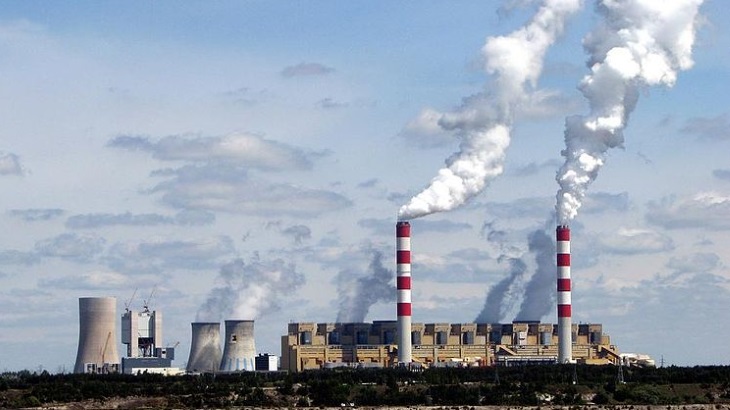Both the Czech Republic and Poland are phasing out their coal-fired power plants and want to replace them with new nuclear power units in order to remain self-sufficient in electricity supply and at the same time reduce their greenhouse gas emissions.
The Czech Republic has six nuclear reactors generating about one-third of its electricity. Four VVER-440 units are at Dukovany, in Vysočina Region, and two VVER-1000 units are at Temelín, in South Bohemian Region. The government's long-term energy strategy, adopted in 2015, forecasts the need to increase the share of nuclear power in the country’s electricity mix by 20-25% to 50-55% by 2050. Czech utility ČEZ applied to the State Office for Nuclear Safety on 25 March to construct two new reactors at its Dukovany nuclear power plant.
Poland meanwhile has no nuclear power plants. It aims to cut the share of coal in its electricity mix from 80% to 32% by 2040 and to introduce 6-9 GWe of nuclear capacity that would account for 18%. It plans to have a six reactor units in operation by 2040.
In a letter to Timmermans and Simons dated 22 June and seen by World Nuclear News, Polish Minister of Climate Michał Kurtyka wrote that it is "important to stress how local conditions may vary" among EU Member States.
"Poland's baseload generations currently relies heavily on fossil fuel combustion," he wrote. "Our geography excludes the development of non-intermittent renewable capacity like hydro, while the window of opportunity to implement nuclear power was missed in the late eighties as a result of an arbitrary decision. This, combined with a large population and industry with rising energy demand, puts us at a different starting point than the rest of our EU partners. This is why Poland, following good example and experience from other Member States, intends to develop nuclear power to replace the baseload capacity provided by coal with a zero-emission, stable generation at a cost affordable for Polish citizens and economy."
The Polish government, he said, was "surprised when nuclear power was not reflected in recent EU policies, including the European Green Deal package, while its place in the EU Taxonomy is still under question". The COVID-19 recovery highlights another benefit from the development of nuclear power, he added, to produce "broad added value" across industrial sectors and generate many high-quality jobs. "This is why the decades-long and hard-earned European leadership in nuclear technologies should not be squandered. On the contrary, it is our responsibility to maintain and develop it for the benefit of future generations," he wrote. "Further prejudice against nuclear power will only continue to penlise new build projects implemented by several Members States, thus hindering the electrification process to which nuclear - representing over 45% of EU low-emission generation - is a major contributor."
Kurtyka's comments echoed the message to Timmermans and Simons from Karel Havlíček, the Czech Republic's deputy prime minister and minister of industry and trade, and Richard Brabec, Czech environment minister, in a letter they wrote in April.
They wrote that, to achieve the EU carbon neutrality goal by 2050, the future shape of Sustainable Finance and the Green Deal takes into account nuclear energy as a "vital and reliable" source of low-carbon electricity. They referred to reports by the Intergovernmental Panel on Climate Change and the International Energy Agency that an increase in nuclear power generation is needed.
Among the benefits of nuclear power outlined by Kurtyka in his letter, Havlíček and Brabec also highlighted the fact that, not including nuclear among sustainable activities in the EU Taxonomy "would lead to an unfavourable signal to the financial institutions and markets". Nuclear energy is essential for the Czech Republic, they wrote, calling on the Commission to "conduct promptly" an assessment of nuclear energy to be able to establish the "technical screening criteria needed for its sustainability in the delegated act at the end of this year".
Kirsty Gogan, executive director of Energy for Humanity, said today: "European climate leaders are modern industrialised economies with low carbon intensity of electricity generation, achieved through a combination of nuclear and renewables. Why deny Poland, Czech Republic and all Member States the opportunity to replace the base-load capacity provided by coal with zero-emissions reliable generation at a cost that is affordable for their citizens and economies?
"There is no evidence-based reason to exclude nuclear energy from the EU Green New Deal Package, and from accessing sustainable finance. On the contrary, there is strong evidence that this will result in both new build and life extensions for existing fleet being more difficult to finance. This not only undermines the principles of the Just Transition, but succeeds in making our climate challenge harder, more expensive, and more likely to fail."
Energy for Humanity is a UK-and Switzerland-based non-profit organisation with a global outlook focused on solving climate change and enabling universal access to modern energy services.





_52351.jpg)


_15863.jpg)






